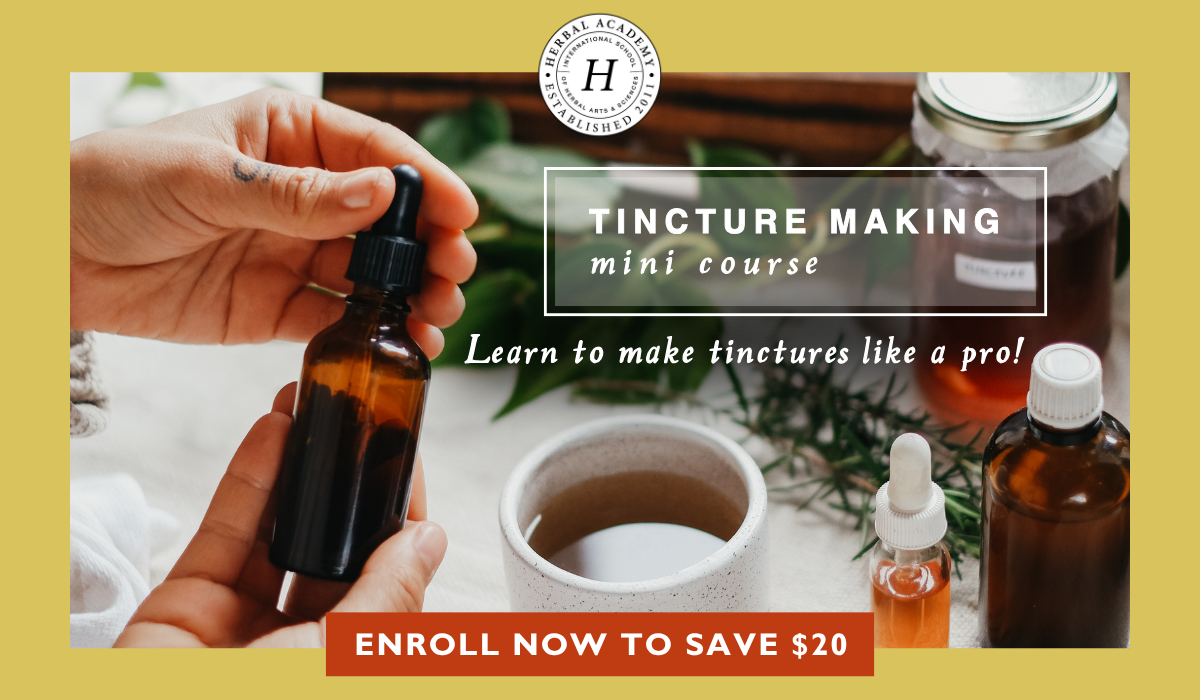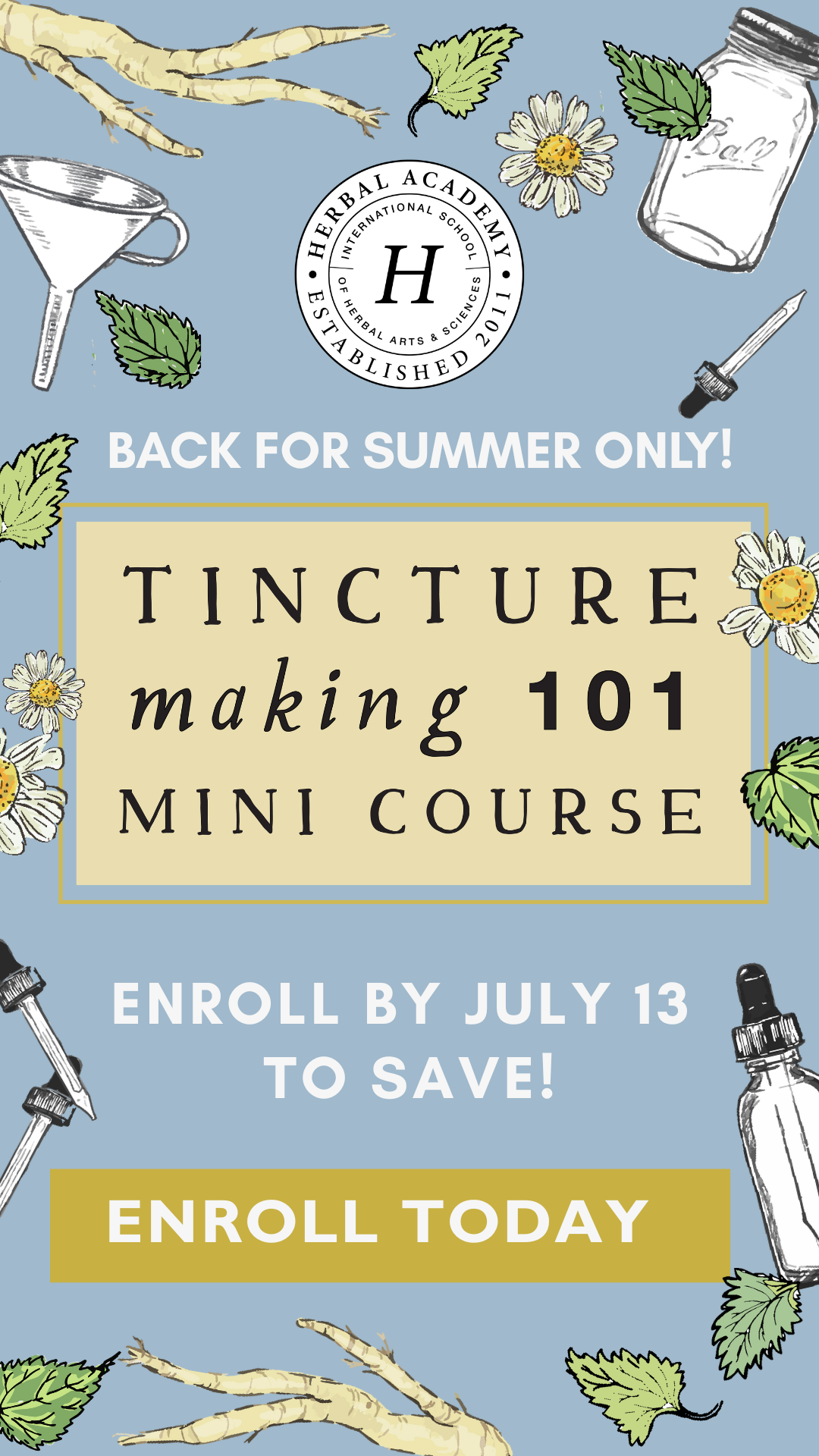
New Pregnancy Intensive and Herbal Support for Insomnia
Insomnia during pregnancy is common, and can be caused by a variety of factors—hormonal changes, nausea and vomiting, an increased need to urinate, pregnancy-related aches and pains, having to sleep in a position that one isn’t accustomed to, and worries about the pregnancy, the birth, and life with a new baby can all keep someone up at night or make it difficult to sleep through the night. In a 2007 National Sleep Foundation survey, 84% of pregnant Americans experienced sleep issues at least three nights/week (National Sleep Foundation, 2007).
In our new Herbal Support for Pregnancy Intensive available in The Herbarium, you’ll learn how to use herbs in a safe, effective way to ease insomnia and other common complaints during pregnancy, as well as how to prepare for birth physically and emotionally. This excerpt on herbal support for insomnia comes from Session 1 of the intensive, in which clinical herbalists Lisa Olson and Shona Richter MacDougall also walk you through the use of some nutritive and tonic herbs that can be incorporated into daily life during pregnancy, herbs for easing stress and anxiety, and topical support for stretch marks, itchy skin, and general discomfort.
As you can imagine, we need to be especially careful when using herbs during pregnancy, as it’s a time when we need to be concerned about the safety of the growing fetus, the health of the pregnant person, and maintaining the pregnancy. If you choose to use any herb or protocol discussed here, it should always be under the supervision of an experienced midwife, obstetrician (OB), or your medical provider.
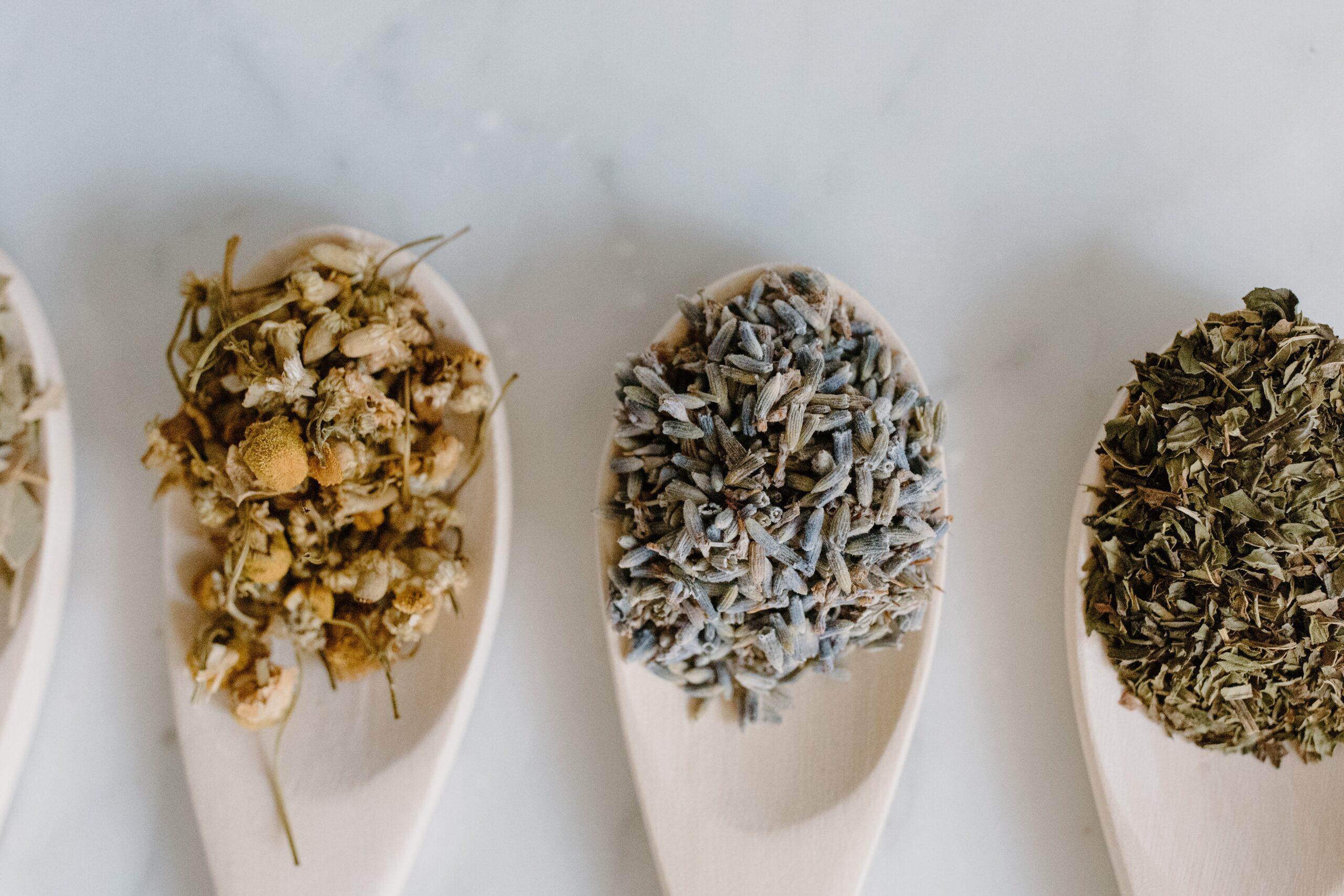
Herbs for Insomnia
Sometimes by minimizing daytime stress, sleep comes easier and sedatives are not needed. But other times, the use of sedative and nervine herbs is extremely helpful for promoting a restful night’s sleep, especially when used in addition to easing daytime stress.
When working with herbs for sleep, one thing to consider beyond the particular herb(s) to use is the delivery method. It can be helpful to use forms other than infusions and decoctions, as high water content can lead to more frequent urination, which is a concern that is already present in pregnancy, so there is no need to contribute further to it. Consider using tinctures, glycerites, oxymels, syrups, powders, electuaries, and other herbal products with no to low water content that are right for you.
Note: These herbs are considered safe in pregnancy; however, it’s always important to check in with your health care provider before taking herbs in pregnancy. Some practitioners and pregnant people opt to wait until the second trimester to use any herbs, even those considered safe in pregnancy.
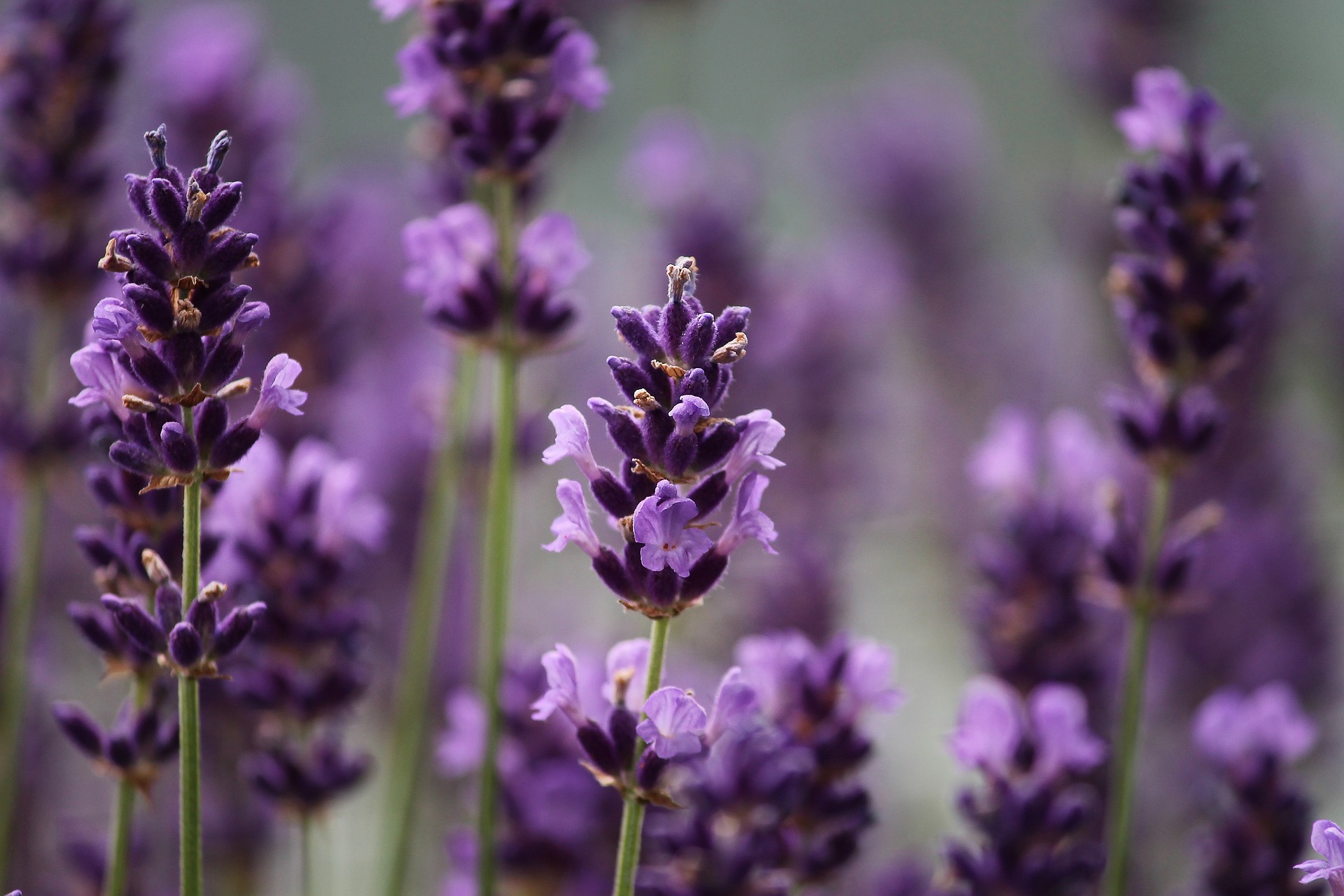
Lavender (Lavandula spp.) flower bud
Lavender is a calming, sedative nervine that can be incorporated in multiple forms to improve sleep and ease anxiety during pregnancy. Lavender flower buds can be incorporated into tea—just take care not to steep too long to avoid a bitter taste!—and can also be made into a tincture or glycerite. Lavender essential oil diffused into a room or incorporated into topical products at proper dilution is also an option.
Aromatherapy with lavender essential oil has been demonstrated to improve anxiety and quality of sleep in non-pregnant populations (Cheng et al., 2022; Karadag et al., 2015; Kim et al., 2021; Seiiedi-Biarag & Mirghafourvand, 2022). There has even been research on the use of lavender aromatherapy to reduce anxiety and pain during labor with positive effect (Tabatabaeichehr & Mortazavi, 2020). One study by Effati-Daryani et al. (2018) on the use of lavender during pregnancy tested the effect of a lavender-based cream applied at 25-28 weeks gestation on sleep quality. The lavender cream was made with a 1.25% dilution of Lavandula angustifolia essential oil and was applied to the legs an hour and a half before bed every evening for 8 weeks. One third of the participants in the study applied a placebo cream, one third applied the lavender cream only, and one third applied the lavender cream and then did a 10-20 minute footbath 30 minutes after applying the cream. The use of lavender cream (with or without the footbath) was found to improve sleep quality (Effati-Daryani et al., 2018).
For clients that are experiencing trouble with sleep during pregnancy, lavender is a great choice, as it seems to have the broadest applicability. One simple way of incorporating lavender into a bedtime routine is using a lavender dream pillow—these can be purchased or you can make your own. Another option, inspired by the clinical trial just discussed, is to purchase a scent-free lotion, cream, or body butter that you enjoy and incorporate lavender (Lavandula angustifolia) essential oil into the product at a 1% dilution. For example, if you have 1 fluid ounce of cream, you can stir in 6 drops of essential oil. You can then apply this to your feet before bed.
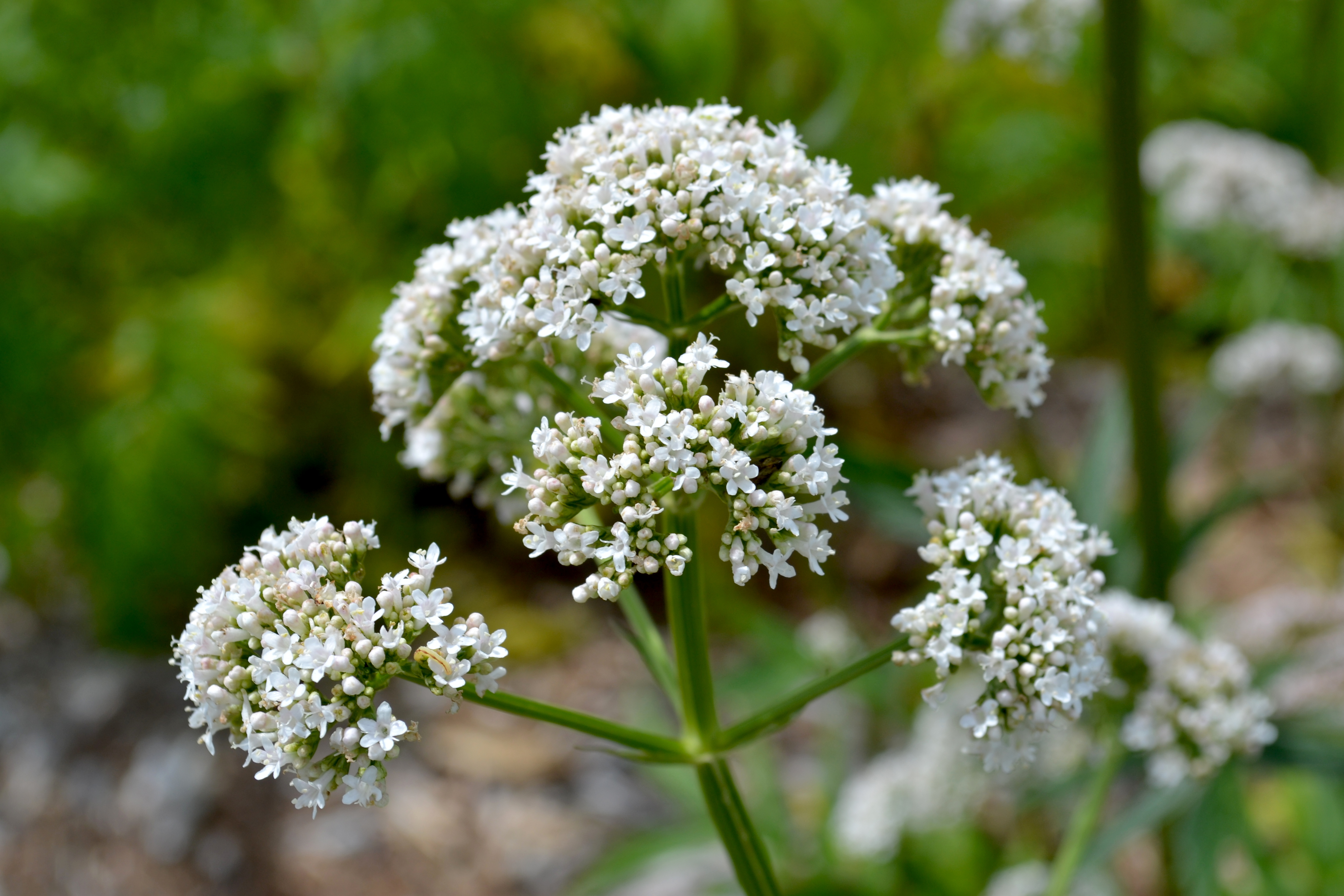
Valerian (Valeriana officinalis) root
Valerian is the quintessential sedative herb, long used for insomnia, with, luckily, no known safety concerns during pregnancy (Gardner & McGuffin, 2013). Valerian can be particularly helpful for folks that are “too wound up” to sleep, have anxiety or tension that are keeping them awake, or tend to be hypervigilant and not feel safe enough to fall asleep. Valerian has a taste that many people liken to “smelly socks,” so it’s typically taken as a tincture or glycerite, rather than a tea, before bed.
Valerian has been well studied for its ability to ease insomnia and anxiety and found to be particularly useful for insomnia associated with anxiety (Shinjyo et al., 2020). One thing to note about valerian is that it is very warming, and it can actually have a stimulating or aggravating effect for folks that already run warm, although this seems to happen much less often with fresh plant extractions than with dry plant use. So if it’s the middle of summer and a pregnant person is already having a hard time sleeping because they can’t get cool enough, valerian may not be the best fit—for these people, using some of the other nervines covered in this session, such as lemon balm, passionflower and skullcap, before bed might be a better fit! But for others that aren’t experiencing excess heat, valerian can work like a charm. It can also be combined with some of the cooling herbs we have discussed to offset its heating energetics. As with so many things in herbalism, sometimes trial is needed here. If you are not sure if valerian is the right fit, consider taking it at naptime for the first time.
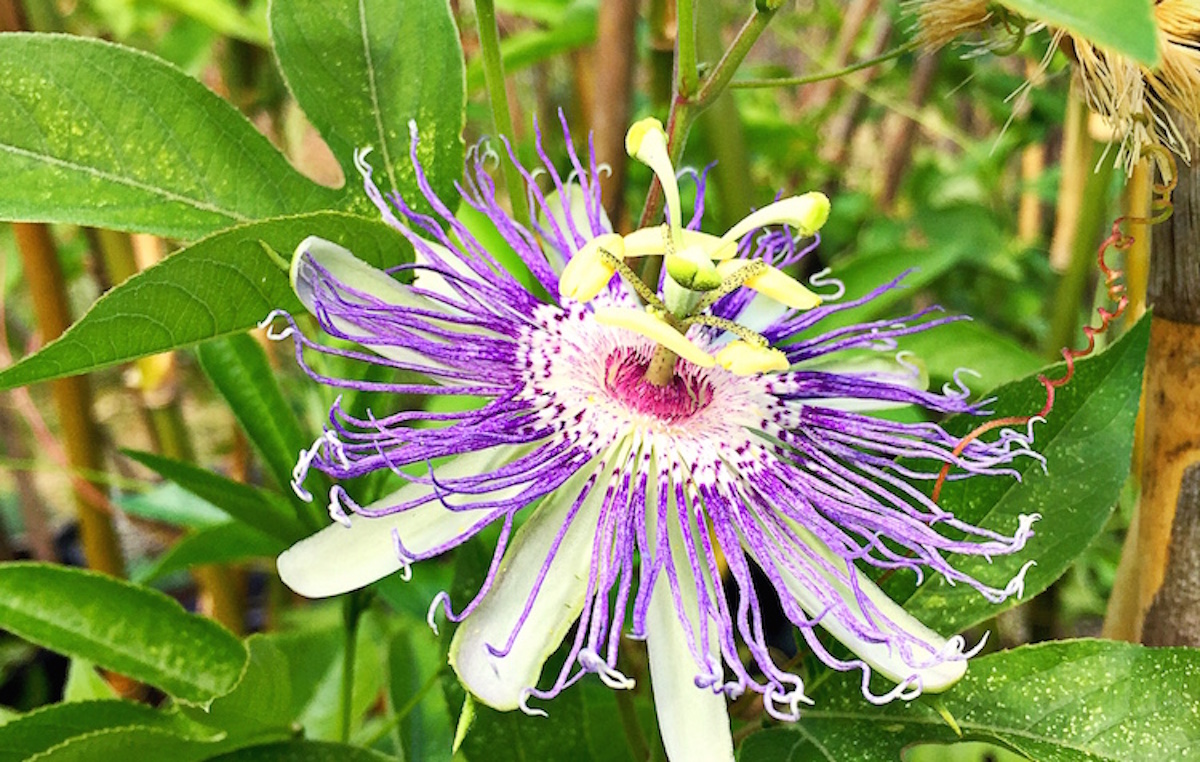
Passionflower (Passiflora incarnata) aerial parts
Passionflower is a wonderful nervine, anxiolytic, and sedative. One common reason for being unable to fall asleep is unwanted thoughts. The Eclectic physicians of the 19th and 20th centuries used passionflower for “disturbed sleep from mental worry” (Ellingwood, 1919, p. 324), where one can not stop going through lists in their mind, or put unwanted thoughts aside, which is sometimes described as circular thinking. These were specific indications for this plant, and passionflower is still considered to be a specific for circular thinking by many herbalists today. Passionflower is especially effective in helping one let go of thoughts that often occupy one’s mind, and then allowing the body to relax and fall asleep.
Study after study shows passionflower to be effective for both anxiety and sleep support. One such study shows that passionflower is as effective as oxazepam (a benzodiazepine) in treating generalized anxiety disorder, without resulting in the job performance impairment that oxazepam can sometimes cause (Akhondzadeh et al., 2001). While most clinical trials test the use of passionflower extract, tablet, or capsule, one clinical trial showed that passionflower tea improved sleep quality (Ngan & Conduit, 2011).
For most people, passionflower isn’t a heavy sedative herb the way that valerian is, but instead it reduces the mental load one is carrying, allowing the body to return to the parasympathetic (rest and digest) mode of the nervous system, allowing one to reach a state of relaxation. Passionflower can combine well with valerian for sleep; it also combines well with skullcap (Scutellaria lateriflora) aerial parts and lemon balm (Melissa officinalis) aerial parts for stress and anxiety both during the day and at night. Although passionflower has not been specifically studied in pregnant humans, no safety concerns have been identified during pregnancy (Gardner & McGuffin, 2013, Yarnell, n.d.).
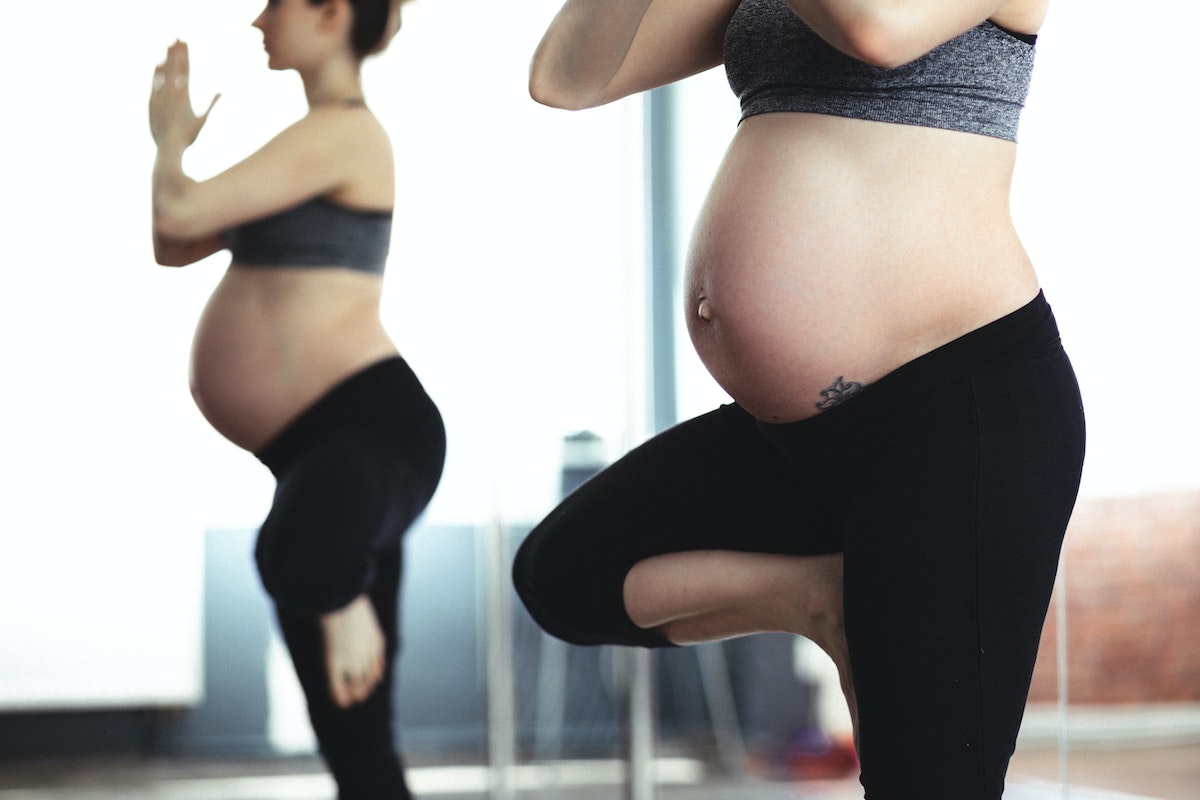
Self-Care Practices for Insomnia
In addition to herbal support, there are many self-care strategies that may help to ease stress, anxiety, and insomnia during pregnancy. This will vary from person to person, but incorporating a daily practice that helps you feel calm and at peace can make all the difference. Some practices that have been specifically studied and were found to help reduce prenatal anxiety, stress, and/or sleep disturbance include tai chi, yoga (Field et al., 2013; Nadholta et al., 2020), and meditation (Green et al., 2022) and mindfulness practices (Dhillon et al., 2017). Of course there are many practices not specifically studied that may be helpful as well. Consider walks in the woods, tree hugging, grounding exercises, journaling, and many others! Sometimes there is trial and error as one finds the supportive practices that are most beneficial to them.
Learn More
Ready to learn more? If you’re already a member of The Herbarium, you can log in for immediate access to the Herbal Support for Pregnancy Intensive, where you’ll find an in-depth discussion of this topic, led by clinical herbalists Lisa Olson and Shona R. MacDougall and herbalist and doula Jovan Sage, including:
Session 1: Safe use of herbs during pregnancy, including nutritive and tonic herbs that can be incorporated regularly, and some specific herbs that can be particularly beneficial for stress, insomnia, and topical support.
Session 2: Herbal support for discomforts that may arise such as nausea, morning sickness, heartburn, constipation, yeast infections, and colds and flu during pregnancy.
Session 3: Herbal support that may be appropriate for iron deficiency anemia, gestational diabetes, and hypertension, and herbs that can be used to prepare the uterus for birth.
Session 4: Preparing for birth, both physically and emotionally, with guidance for selecting your birthing team, bringing your preferences into focus, and considering the elements of comfort and nourishment to have on hand during the birthing process itself.
Not a member yet? Get access today with a 3-day trial for only $3!
The Herbarium is our ever-expanding, illuminating virtual collection of over 200 (and counting!) searchable herbal monographs, topic-specific intensives, and numerous articles, videos, ebooks, and helpful downloadable resources. Members also gain instant access to several other intensives on popular topics, such as A Holistic Approach to Fertility and Natural Approaches to the Management of PCOS. The Herbarium is crafted to help you learn and grow in your herbal journey!
Learn more and sign up for The Herbarium here.
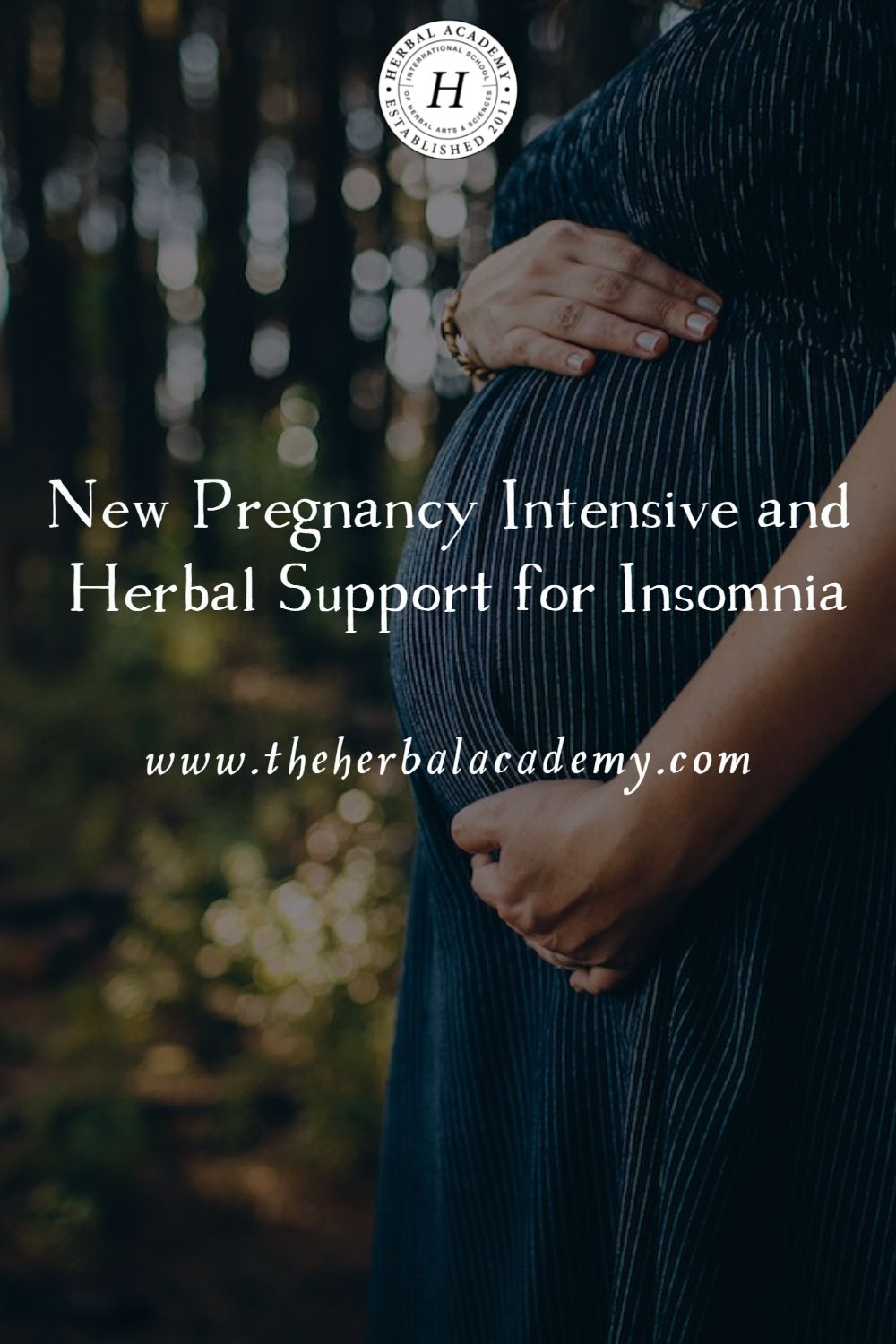
REFERENCES
Akhondzadeh, S., Naghavi, H.R., Vazirian, M., Shayeganpour, A., Rashidi, H., & Khani, M. (2001). Passionflower in the treatment of generalized anxiety: A pilot double-blind randomized controlled trial with oxazepam. Journal of Clinical Pharmacy and Therapeutics, 26(5), 363-367. http://doi.org/10.1046/j.1365-2710.2001.00367.x
Cheng, H., Lin, L., Wang, S., Zhang, Y., Liu, T., Yuan, Y., … Tian, L. (2022). Aromatherapy with single essential oils can significantly improve the sleep quality of cancer patients: A meta-analysis. BMC Complementary Medicine and Therapies, 22(1), 187. https://doi.org/10.1186/s12906-022-03668-0
Dhillon, A., Sparkes, E., & Duarte, R.V. (2017). Mindfulness-based interventions during pregnancy: A systematic review and meta-analysis. Mindfulness, 8(6), 1421-1437. http://doi.org/10.1007/s12671-017-0726-x
Effati-Daryani, F., Mohammad-Alizadeh-Charandabi, S., Mirghafourvand, M., Taghizadeh, M., Bekhradi, R., & Zarei, S. (2018). Effect of lavender cream with or without footbath on sleep quality and fatigue in pregnancy and postpartum: A randomized controlled trial. Women & Health, 58(10), 1179-1191. https://doi.org/10.1080/03630242.2017.1414101
Ellingwood, F. (1919). American materia medica, therapeutics, and pharmacognosy. Ellingwood’s Therapeutist.
Field, T., Diego, M., Delgado, J., & Medina, L. (2013). Tai chi/yoga reduces prenatal depression, anxiety and sleep disturbances. Complementary Therapies in Clinical Practice, 19(1), 6-10. https://doi.org/10.1016/j.ctcp.2012.10.001
Gardner, Z., & McGuffin, M. (Eds.). (2013). American Herbal Products Association’s botanical safety handbook. CRC Press.
Green, J., Neher, T., Puzia, M., Laird, B., & Huberty, J. (2022). Pregnant women’s use of a consumer-based meditation mobile app: A descriptive study. Digital Health, 8, 20552076221089098. https://doi.org/10.1177/20552076221089098
Karadag, E., Samancioglu, S., Ozden, D., & Bakir, E. (2015). Effects of aromatherapy on sleep quality and anxiety of patients. Nursing in Critical Care, 22(2), 105-112. https://doi.org/10.1111/nicc.12198
Kim, M., Nam, E.S., Lee, Y., & Kang, H.J. (2021). Effects of lavender on anxiety, depression, and physiological parameters: Systematic review and meta-analysis. Asian Nursing Research, 15(5), 279-290. https://doi.org/10.1016/j.anr.2021.11.001
Nadholta, P., Bali, P., Singh, A., & Anand, A. (2020). Potential benefits of yoga in pregnancy-related complications during the COVID-19 pandemic and implications for working women. Work, 67(2), 269-279. https://doi.org/10.3233/WOR-203277
National Sleep Foundation. (2007). Sleep in America poll: Summary of findings. https://www.thensf.org/wp-content/uploads/2021/03/2007-SIA-Summary_Of_Findings.pdf
Ngan, A., & Conduit, R. ( 2011) A double-blind, placebo-controlled investigation of the effects of Passiflora incarnata (passionflower) herbal tea on subjective sleep quality. Phytotherapy Research, 25(8), 1153-1159. https://doi.org/10.1002/ptr.3400

